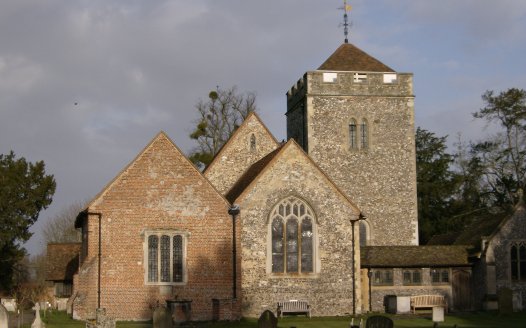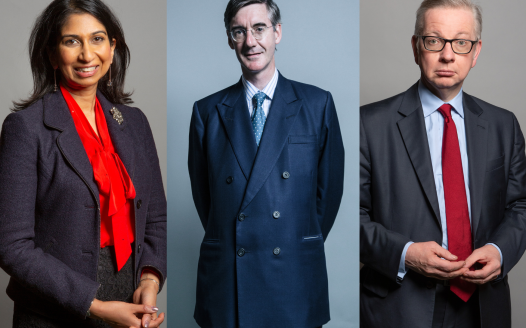The debate over David Cameron’s call to Christianity has taken a wrong turn
Posted: Tue, 22nd Apr 2014 by Terry Sanderson
Terry Sanderson argues that the debate over David Cameron's assertions that the UK is a "Christian Nation" has led away from the important question of whether it should be.
The controversy over David Cameron's Christian chauvinism and the reaction it has prompted is interesting and frightening at the same time.
It is unfortunate that the debate has turned into "Is Britain a Christian country?" because it opened the doors for those Christians who don't understand secularism (or who prefer to misrepresent it) to turn the whole thing into an attack on their personal faith.
The question we really need to ask is "Would Britain be a safer and fairer place if it had a secular constitution?"
Naturally if you have privileges that you have enjoyed for hundreds of years, the knee-jerk answer will be "no".
But those more thoughtful Christians such as Canon Giles Fraser, realise that there are dangers in a Prime Minister nailing his government's colours to the mast of a particular religion.
Mr Fraser told The Times that Mr Cameron had made a "dangerous" intervention.
"This country has a significant Christian past," he said. "It has a significant non-Christian past and I think they all have to be honoured. One of the things that's dangerous about David Cameron's rhetoric is the way in which that can be picked up as being exclusive. When politicians start using that phrase, I'm always a little bit suspicious about what they're trying to do with it . . . It can be quite a shrill thing to say within the political world. I just think people need to be quite careful about that language. It can be slightly dog-whistle politics."
Let's be clear at once that we have no problem with Mr Cameron wearing his personal religion on his sleeve. Just so long as he is not intending to use his position as leader of the nation to give Christianity a special voice in policy-making that will affect us all, religious and non-religious, Christian and non-Christian, then that's fine.
But from his recent statements it is difficult to avoid the conclusion that he does intend to privilege Christianity.
He intends to become "evangelical" about it.
And while some "faith leaders" from the Muslim, Sikh, Jewish and Hindu communities have come out to support Mr Cameron's stance, there will be others who will be feeling very uneasy about where this is leading.
Of course, it could be that Mr Cameron is simply electioneering. Trying to out-holy UKIP's Nigel Farage or trying to bring the churches back on board after his spat with them over gay marriage.
If that is the case, then religious leaders would be well advised to call Mr Cameron's cynicism what it is – political opportunism of the basest kind.
But if he really means it, then we are on sticky ground.
Some religious adherents have very short fuses. Some of them will resort to violence when they are thwarted, they will tell you quite plainly that they are prepared to die for their religion.
With those levels of fanaticism at large in our nation, it is quite wrong – and yes, dangerous - for the Prime Minister to tell us all that Christianity rules.
I have been doing radio interviews about the issue this week and have heard representatives of the Church of England telling me that Christianity has formed our laws, brought social justice to our land, been responsible for the introduction of human rights – in fact, all things good that have happened in our green and pleasant land are the product of Christianity.
Of course, it requires a wholesale rewriting of history to make these claims stand up.
The Church of England has been grotesquely oppressive and cruel in its time. It has been responsible for the introduction of laws that created misery for untold numbers of people. It forbade divorce, it made contraception illegal, it restricted women's access to abortion, it outlawed homosexuality and even stood in the way of cremation as an alternative to burial (the body must be intact, you see, for the Day of Judgment). Even suicide was illegal because the church said it was un-Christian.
All this was swept away as the Church lost its power. One after another Bible-based laws have been repealed. New laws are formulated on the secular principal of reason, fact and compassion.
And as for human rights – one of the first campaigns I was involved in when I joined the NSS was to stop the churches exempting themselves from the Human Rights Act as it was introduced into parliament. Such is the "faith leaders" commitment to human rights that they didn't want to observe them.
Secularism is the answer. It will not interfere with the rights of religious people to observe their religion. Indeed, it will protect them.
But it will interfere with their tendency to want to impose their faith on the unwilling. (Just as Mr Cameron is doing at the moment).
So – is Britain a Christian country? Constitutionally – yes (in a sectarian way); culturally – yes (but in a diminishing way); in the hearts of its people – if opinion polls are to be believed, no.
It doesn't matter what people believe, what matters is that this should be a country with a secular constitution that respects and protects everyone's belief and non-belief equally.








